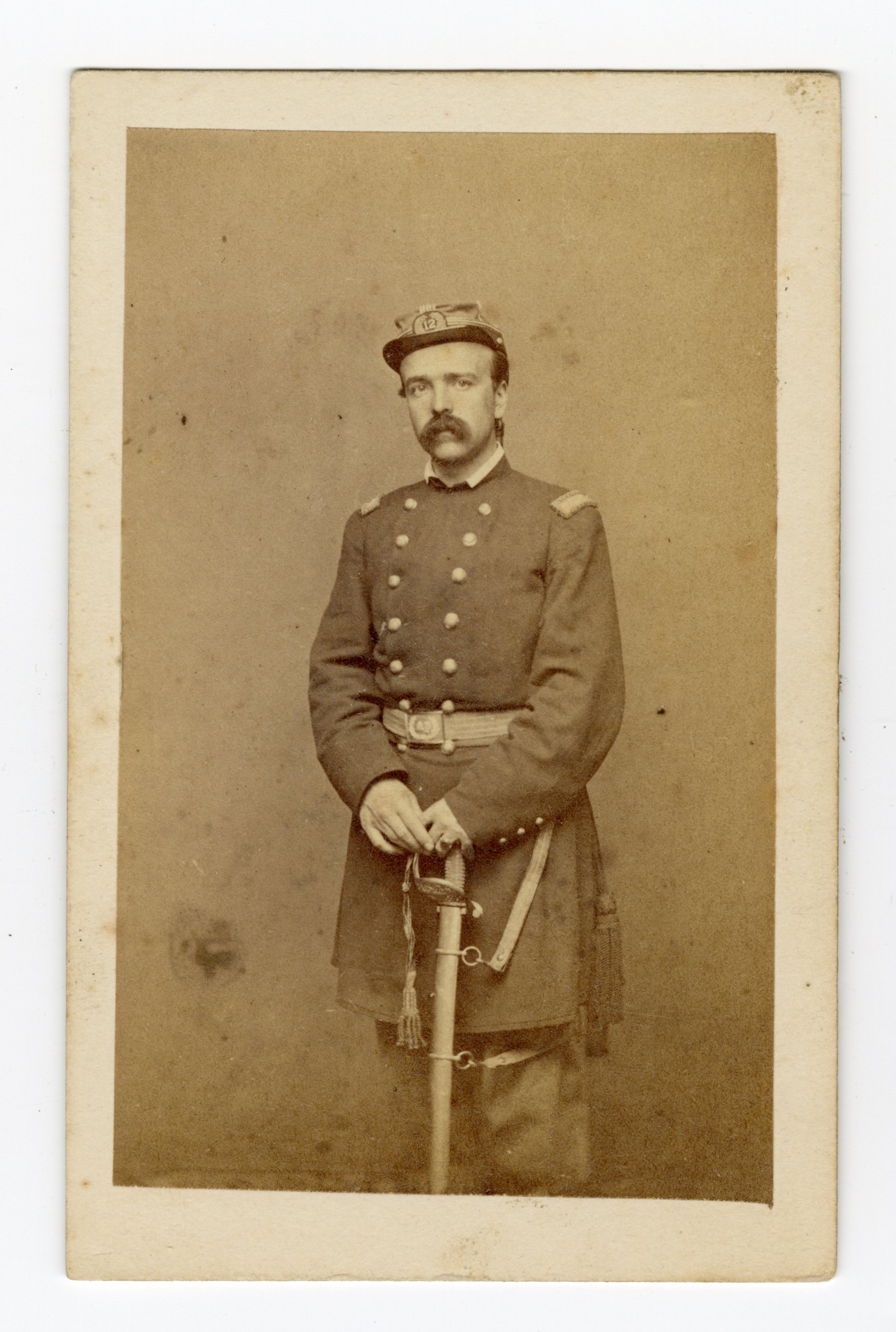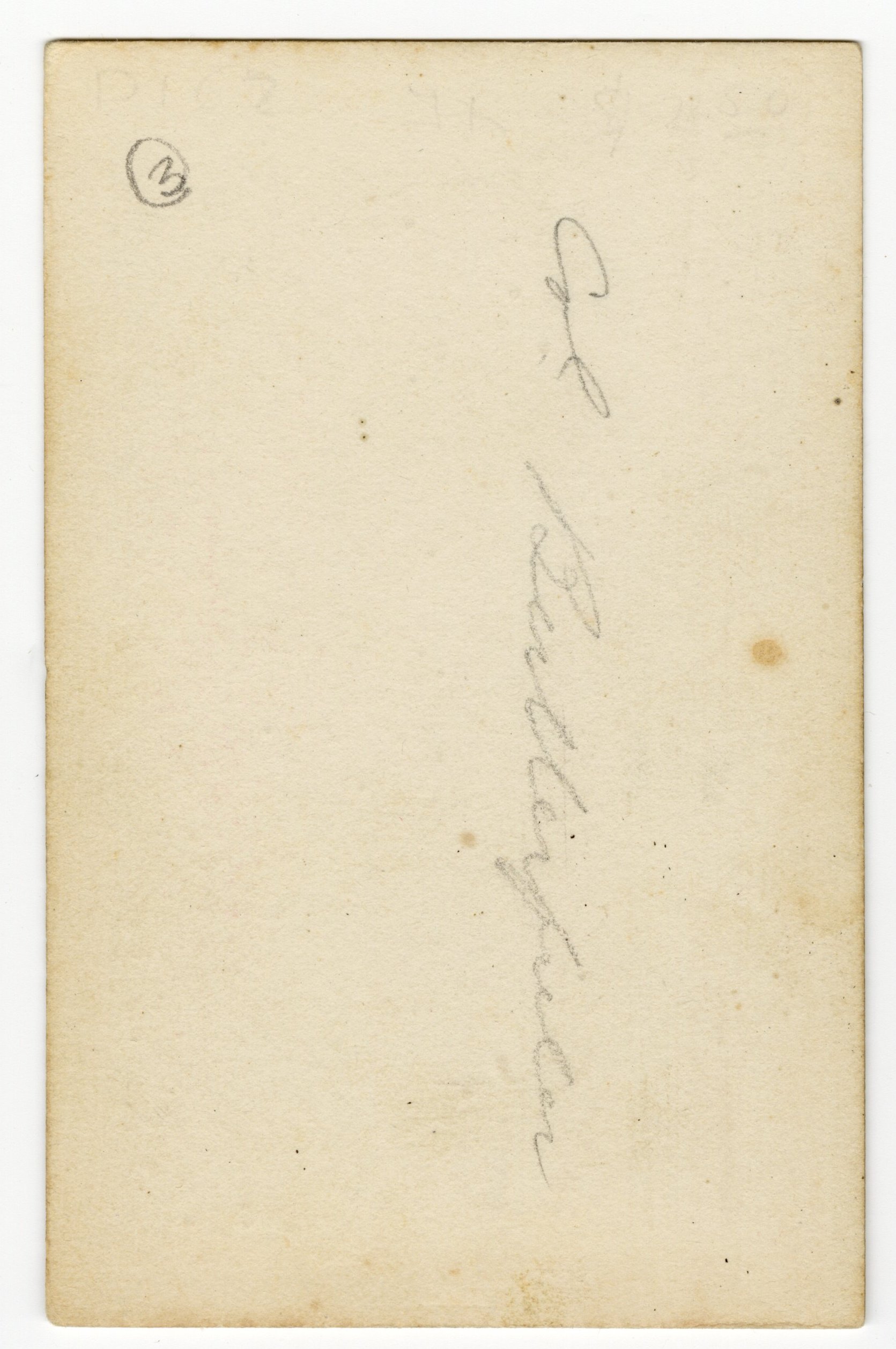Daniel Butterfield - Wounded at Gettysburg & Medal of Honor at Gaines Mill
Item CDV-10856
Price: $550.00
Description
Daniel Adams Butterfield (October 31, 1831 – July 17, 1901) was a New York businessman, a Union general in the American Civil War, and Assistant Treasurer of the United States.Butterfield went to New York City as superintendent of the eastern division of his father's company. There, he joined the Seventy-First regiment of New York militia as a captain. Shortly after the fall of Fort Sumter, Butterfield joined the Clay Guards of Washington, D.C., as a first sergeant, but subsequently transferred to the 12th New York Volunteer Infantry as a colonel.
He was commissioned brigadier and major general of the Volunteers and commanded a division of the V Corps. He fought at the First Battle of Bull Run on 21 July 1861. He wrote the 1862 Army field manual, Camp and Outpost Duty for Infantry.
Butterfield joined Maj. Gen. George B. McClellan's Army of the Potomac for the Peninsula Campaign in the V Corps, commanded by Maj. Gen. Fitz John Porter. In the Seven Days Battles, at Gaines' Mill on June 27, 1862, he was wounded but demonstrated the bravery that was eventually recognized in 1892, with the Medal of Honor.
Butterfield continued in brigade command at the Second Battle of Bull Run and the Battle of Antietam, became division commander and then V Corps commander for the Battle of Fredericksburg. His corps was one of those assaulting through the city before facing an assault from Marye's Heights. After the debacles of Fredericksburg and the Mud March, Maj. Gen. Joseph Hooker replaced Ambrose Burnside as Army of the Potomac commander and Butterfield became Hooker's chief of staff in January 1863. Butterfield was promoted to major general of volunteers in March 1863, with a date of rank of November 29, 1862.
Hooker and Butterfield developed a close personal and political relationship. To the disgust of many army generals, their headquarters were frequented by women and liquor, being described as a combination of a "bar and brothel". Political infighting became rampant in the high command and Butterfield was widely disliked by most of his colleagues. However, in the spring of 1863, the two officers managed to turn around the poor morale of the army and greatly improved food, shelter and medical support. During this period Butterfield introduced another custom that remains in the Army today: the use of distinctive hat or shoulder patches to denote the unit to which a soldier belongs, in this case the corps. He was inspired by the division patches used earlier by Maj. Gen. Philip Kearny, but extended those to the full army; Butterfield designed most of the patches himself.
Hooker was replaced after the Battle of Chancellorsville by Maj. Gen. George G. Meade, just before the Battle of Gettysburg. Meade distrusted Butterfield, but retained him as chief of staff. Butterfield was wounded at Gettysburg on July 3, 1863, and left active duty to convalesce. Meade removed him as chief of staff on July 14, 1863. On July 1, 1863, Butterfield was appointed as colonel of the 5th United States Infantry.
After Gettysburg, Butterfield actively undermined Meade in cooperation with Maj. Gen. Daniel Sickles, another crony of Hooker's. Although the battle was a great Union victory, Sickles and Butterfield testified to the Joint Committee on the Conduct of the War that Meade vacillated and planned as early as July 1, to retreat from Gettysburg, thus damaging his reputation. Butterfield's chief evidence for this assertion was the Pipe Creek Circular that Meade had his staff prepare before it became apparent there would be a battle at Gettysburg.
Butterfield returned to duty that fall as chief of staff once again for Hooker, now commanding two corps in the Army of the Cumberland at Chattanooga, Tennessee. When these two depleted corps (the XI and XII Corps) were combined to form the XX Corps, Butterfield was given the 3rd Division, which he led through the first half of Sherman's Atlanta Campaign. Illness prevented his continuing with Sherman, resulting in Butterfield's assuming light duties at Vicksburg, Mississippi, followed by recruiting and the command of harbor forces in New York.
While the Union Army recuperated at Harrison's Landing, Virginia, from its grueling withdrawal during the Seven Days Battles, Butterfield experimented with bugle calls and is credited with the composition of "Taps". He wrote "Taps" to replace the customary firing of three rifle volleys at the end of burials during battle. "Taps" also replaced Tattoo, the French bugle call to signal "lights out". Butterfield's bugler, Oliver W. Norton of the 83rd Pennsylvania Volunteers, was the first to sound the new call. Within months, "Taps" was played by buglers in both the Union and Confederate armies. This account has been disputed by some military and musical historians, who maintain Butterfield merely revised an earlier call known as the Scott Tattoo and did not compose an original work.
Medal of Honor
Rank and organization: Brigadier General, U.S. Volunteers. Place and date: At Gaines Mill, Va., June 27, 1862. Entered service at: Washington, D.C. Born: October 31, 1831, Utica, N.Y. Date of issue: September 26, 1892
The 1896 Pattern Medal of Honor was awarded to Daniel Butterfield, “for distinguished gallantry in action at Gaines Mills, Va. June 27, 1862”.
Citation: "Seized the colors of the 83d Pennsylvania Volunteers at a critical moment and, under a galling fire of the enemy, encouraged the depleted ranks to renewed exertion."
Source: Wikipedia


